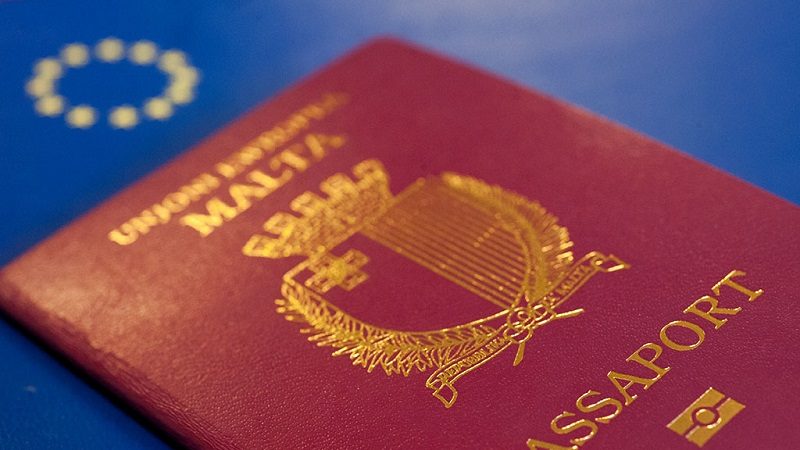Malta is a step closer to facing EU court proceedings over its controversial passport sales scheme, which it has failed to dismantle despite numerous warnings from the EU Commission.
In a final legal procedure before hauling the Maltese government before the Luxemburg-based EU court, the Commission has sent Castille a ‘reasoned opinion’ – the last step before full court proceedings – instructing it to halt the cash-for-passport scheme with immediate effect.
Malta has already ignored the EU’s direction after having being told to stop selling passports last year. Instead, the government attempted get around the EU’s order, by tweaking the scheme and claiming it was making it more secure.
This failed to mollify the EU, which has indicated that it understands the Maltese government is not willing to cancel the scheme and is now moving to start legal procedures in court.
“Malta now has two months to reply to the Commission and if the reply is not satisfactory, the Commission may bring this matter before the Court of Justice,” a Commission statement issued today said.
Malta recently suspended passport sales to Russian and Belarusian nationals following the Russian invasion of Ukraine. The suspension came in a spectacular government U-turn just a day after the then parliamentary secretary responsible for the scheme, Alex Muscat, publicly stated that the government had no intention of blocking such sales. Muscat was not given a position in cabinet after the recent elections.
The Commission said that while the partial suspension was “a step in the right direction,” it was not enough.
“Malta continues to operate the scheme for all other nationals and did not express any intention to stop,” Brussels said.
“The Commission considers that such a scheme is in breach of the principle of sincere cooperation and infringes the very status of citizenship of the Union as laid down in the Treaties,” the Commission said, while insisting that the scheme should be completely abolished.
Other EU member states who have similar schemes including Cyprus, Portugal and Bulgaria have ended their schemes.
Introduced in 2014 soon after disgraced former Labour Prime Minister Joseph Muscat won office in 2013, Malta has since sold thousands of passports to wealthy foreigners, particularly from Russia, the Middle East and China, some of whom have been exposed as having very shady pasts and/or connections.
Despite the requisite that passport acquisition required the beneficiary to reside in Malta for a year, the government allowed applicants to get around the rules, allowing unknown numbers of passport-buyers to purchase EU citizenship without spending any time in Malta.
Among the beneficiaries of thousands of commissions from the selling of passports are major legal firms and auditing companies, including the so-called Big Four. Prime Minister Robert Abela, through his legal firm, was also acting as an agent for the sale of passports and was recently outed for having allowed two Russian applicants to use an empty house he owned in Zejtun as their supposed Malta address.
The government has consistently refused to publish details about the individuals acquiring Maltese passports.













The EU should suspend all funding to Malta, until it publishes full details of every individual who acquired a Maltese Passport.
The EU Court of Justice, should judge the scheme as a measure that goes against the territorial security of every member State of the Union, and also as a misappropriation of funds that should have been ceded to the European Treasury. The funds earned from the scheme, should furthermore be witheld from funds that may be allocated under the next budget allocation.
Agree 100% with the rationale. When the country is run by crooks whose sole motivation is to further enrich their piles of ill-gotten gains, the only way to hurt them – short of putting them behind bars which is where they should be- is to starve them of the sources of their income.